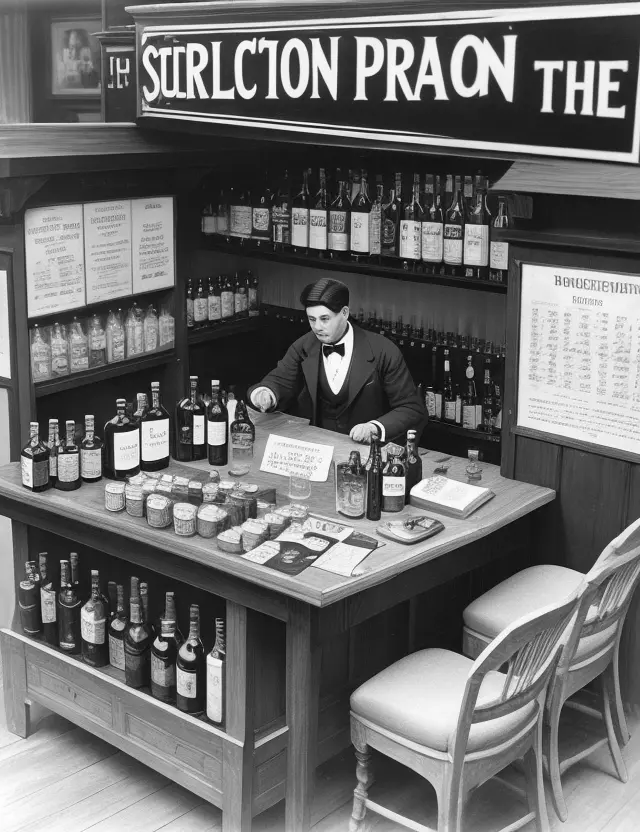Prohibition in the United States
January 16, 1920

Prohibition in the United States
On January 16, 1920, a transformative chapter in American history began with the initiation of Prohibition. This marked the enforcement of the 18th Amendment to the United States Constitution, which prohibited the sale, manufacture, and transportation of alcoholic beverages. The temperance movement, which advocated for the reduction or elimination of alcohol consumption, had successfully led to the nationwide ban on alcohol.
The 18th Amendment
The 18th Amendment was ratified on January 16, 1919, and it went into effect one year later. The amendment was a result of the efforts of the temperance movement, which gained significant traction in the late 19th and early 20th centuries. Supporters believed that banning alcohol would address social issues, improve public health, and reduce crime.
The Volstead Act
To enforce the 18th Amendment, the Volstead Act was passed by Congress. This legislation defined the types of alcoholic beverages that were prohibited and set the legal limits for alcohol content. However, the attempt to legislate morality faced challenges, leading to the rise of illegal speakeasies, bootlegging, and the organized crime associated with the Prohibition era.
Social and Economic Impact
Prohibition had far-reaching consequences on American society. While it was intended to promote public welfare, it instead contributed to the growth of illicit activities and a thriving underground economy. The ban on alcohol also sparked cultural shifts, with the emergence of jazz clubs, secret bars, and a rebellious spirit in the Roaring Twenties.
Repeal of Prohibition
The shortcomings and unintended consequences of Prohibition led to its eventual repeal. The 21st Amendment, ratified on December 5, 1933, repealed the 18th Amendment and brought an end to Prohibition. This remains the only instance in American history where a constitutional amendment was repealed by another.
Legacy of Prohibition
While Prohibition did not achieve its intended goals, it left a lasting impact on American culture and legal history. The era is remembered for its contradictions, from the pursuit of moral reform to the rise of illegal activities, and its influence continues to be studied and discussed today.
Reflecting on a Historic Era
On this day, January 16, we reflect on the initiation of Prohibition in the United States and the complex social experiment that unfolded during this transformative period in American history.



